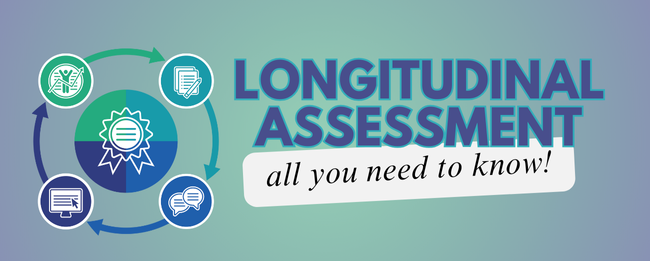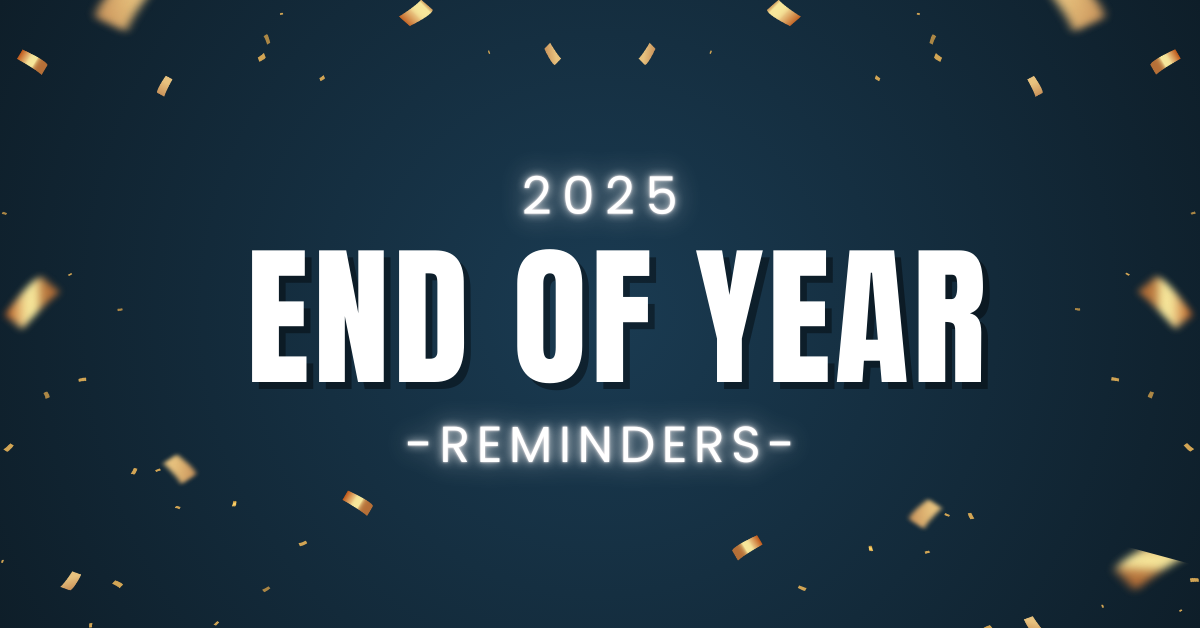LA-PMR
CertLink Pilot Update and Customization System
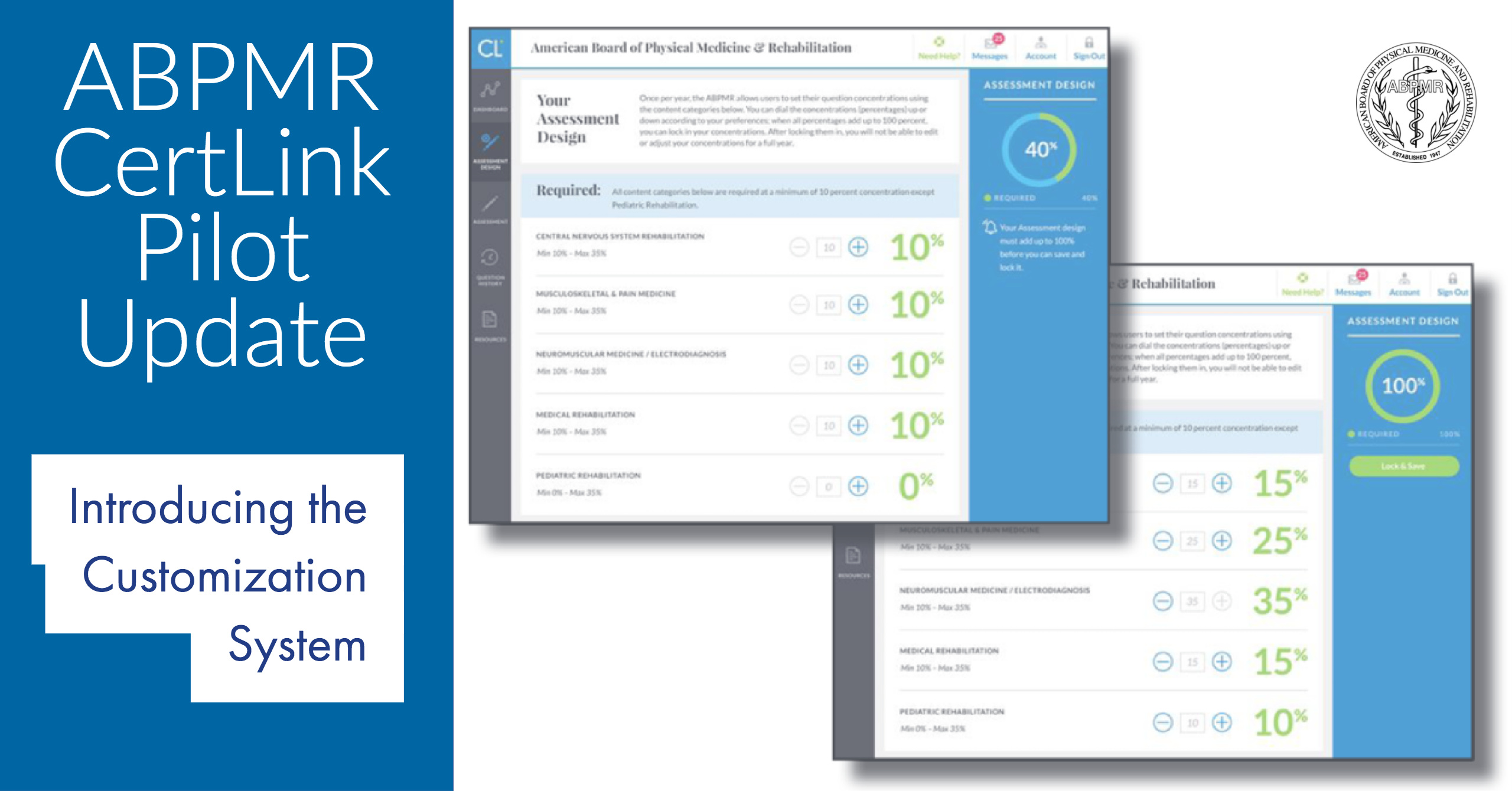
More than a year ago, we told you about our decision to pursue a pilot to test whether longitudinal assessment could one day replace the current secure Maintenance of Certification (MOC) Examination.
Since then, we've been busy! Here's a partial list of completed and ongoing tasks:
- Gathered input from our diplomates via surveys, focus groups, and qualitative interviews
- Finalized and announced participant incentives
- Engaged experienced physiatrists through workshops and other events to write more than 200 questions for the platform (and counting)
- Provided feedback to the American Board of Medical Specialties (ABMS) on design changes to the platform to make it work for physiatry
- Designed a customization system for the pilot
- Tested the platform during a "soft launch" period, working out bugs and preferences
- Invited randomly selected diplomates with certificate end dates between 2019-2022 to participate in the pilot
- Secured agreements from 305 diplomates as official pilot participants
We're currently working on the final touches for a smooth launch in early April, but today we're giving you a sneak peek of a piece we're especially proud of: The ABPMR CertLink customization system.
This is what our pilot participants will see the first time they log in to the ABPMR CertLink platform:
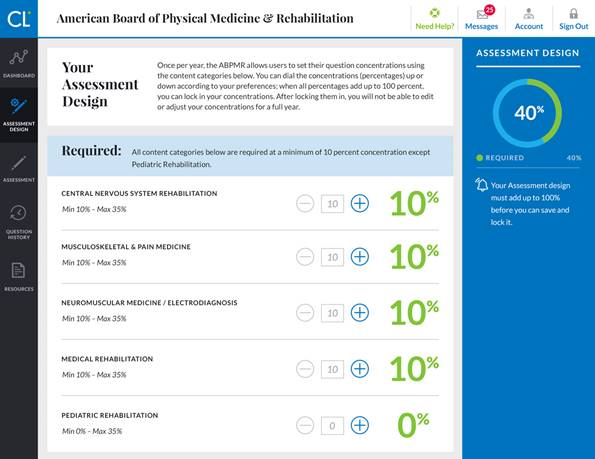
You'll notice that all categories (except pediatric rehabilitation medicine) are set at a minimum of 10 percent of the total assessment. This is because the ABPMR board of directors has determined all of these categories to be "core content" for the purpose of maintaining certification in PM&R. The customization system allows participants to weight the number of questions according to their preferences while still maintaining a minimum baseline knowledge of these core areas of PM&R.
After initial categories and percentages were chosen, we engaged our ABPMR CertLink Advisory Group for feedback. Based on their input:
- The content/names of categories were revised
- The maximum percentage was increased to 35% for all categories
- In response to one of the most repeated requests, we allowed participants to select 0% for the pediatric rehabilitation medicine category
Participants will also be given a few of the subcategories contained in each main category, namely:
- Central Nervous System Rehabilitation: Brain Injury, Spinal Cord Injury, Stroke
- Musculoskeletal & Pain Medicine: Arthritis, Acute/Chronic Trauma, Fractures, Spinal Disorders, Sports Medicine
- Neuromuscular Medicine / Electrodiagnosis: Electromyography, Neuropathies, Nerve Conduction Studies, Neuromuscular Transmission
- Medical Rehabilitation: Amputation, Cancer, Cardiopulmonary, Infectious Disease, GU/GI, Transplant
- Pediatric Rehabilitation Medicine: PRM topics
Keep in mind that this customization system is set for the pilot only. Throughout the pilot, the ABPMR will be interested to hear whether the categories and percentages enable participants to satisfactorily tailor the assessment to their practices.
Here's an example of a completed customization screen:
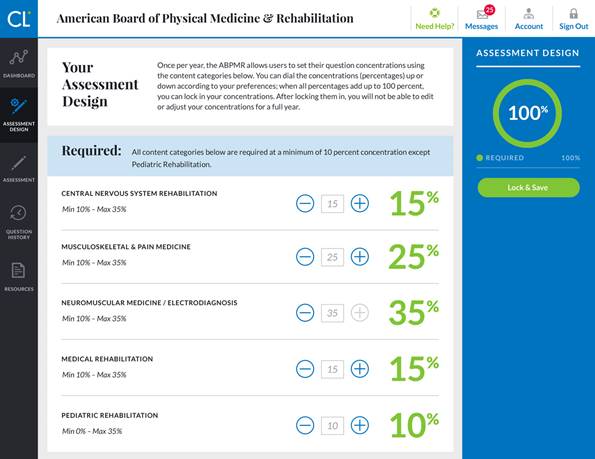
Once the participant clicks "Lock & Save," these percentages may not be changed for a full year. This allows the system to deliver the correct distribution of items for at least four quarters before changes can be made to the concentrations.
Interested in learning more? Make sure you read the other News Center articles about CertLink and the main CertLink page. If you still have questions about CertLink or how it will affect you, please contact us.
